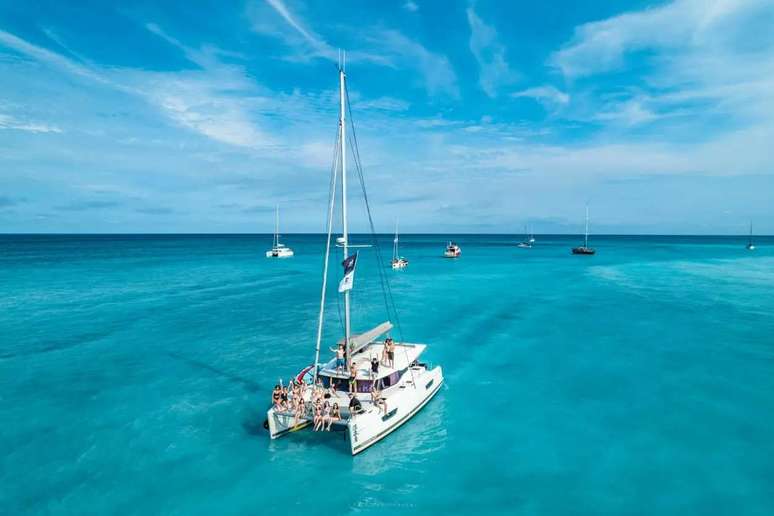Justice tends to award amounts that rarely exceed 500 minimum wages. Among the reasons, experts say, the analysis of the economic conditions of the victim and the phobia of a “compensation industry”. This month, the tragedy of the Kiss nightclub, in Santa Maria (RS), turns eleven. For the fire that killed 242 people on January 23, 2013, no one has yet been held criminally responsible. In the civil field, however, some compensation actions have already been pronounced by the courts.
In one of them, the Court of Justice of Rio Grande do Sul decided, in 2020, that the State of Rio Grande do Sul and the municipality of Santa Maria together paid compensation of R$ 109,000 to the parents of a 19-year-old years old man died in tragedy. The same court also ordered the municipality of the city of Rio Grande do Sul, where the fire occurred, to compensate approximately R$200,000 to the family of another victim, who died at the age of 18.
These cases are representative of the difficulties encountered by families of victims of tragedies and accidents in Brazil in requesting compensation, in money, for the moral and psychological damage caused by the loss of a loved one. According to experts consulted by DW, the amounts granted in the shares are generally low.
Fernando Jayme, a professor at the Faculty of Law of the Federal University of Minas Gerais (UFMG), says that one of the problems with compensation in Brazil is the lack of a definition of the amounts that must be paid to families.
“There are material damages and moral damages. Moral damages have no objective parameters to arbitrate. So we can see a large variation in jurisprudence, a very large fluctuation from case to case – it depends on the conditions of the victim, including the economic condition, since the compensation for moral damage cannot enrich the victim,” he says.
How much is a life worth?
In the Superior Court of Justice (STJ), death compensation cases have been set between 300 and 500 minimum wages, which is not always the rule. In 2019, this parameter was used to reform a sentence issued by the Federal Regional Court of the 2nd Region against the family members of a 17-year-old young man killed in 2008 in Rio, in the case known as Chacina da Providência.
TRF-2 had reduced compensation to family members to R$110,000, which was reformed by the STJ to R$300,000, or 400 minimum wage at the time, the amount decided in the initial ruling.
According to Leonardo Amarante, a civil liability lawyer and retired lawyer from the state of Rio de Janeiro, in Brazil there is a tendency for low-value compensation. Among the reasons he cites the fact that the judiciary analyzes elements that in his opinion should not be considered, such as the economic capacity of the victim.
«It doesn’t matter if the person is poor or rich, we must consider the existence of damage that is independent of economic capacity. It is difficult to talk about enrichment in exchange for a relative, a child. On the contrary, the person would give any money to not receive this compensation and have their loved one back,” says Amarante.
Phobia of a “compensation industry”
An argument that is often used to keep compensation at relatively low values in Brazil is the fear of a practice that occurs in countries like the United States, where compensation of high values is awarded in a pedagogical way so that the damage is not repeated.
Recently, a Georgia state court ordered Ford to pay $1.7 billion (about R$8 billion) to the children of a couple killed in 2014 in the overturn of a pickup truck produced by the automaker. The family members claimed that the roof of the car was defective and caused the death of the parents.
By way of comparison, in Brazil, the family members of the musician Chico Science, who died in 1997 in an accident with a Fiat car, received in 2007 one of the largest compensations paid to private individuals in the country. The amount of R$10 million was decided in a settlement, based on the fact that the seat belt broke and caused the death of the artist.
“The Brazilian judiciary is very phobic about the so-called compensation industry, as the one that happens in the United States is called,” says professor and lawyer Maurício Stegemann Dieter, of USP’s department of criminal law and criminology. However, he appreciates the pedagogical nature of the high-value compensation so that the mistake is not repeated. “Administrative sanctions in Brazil generally perpetuate mistakes,” he says.
He states that, for example, in the case of the Kiss Nightclub, who caused the fire should not matter, since there was an omission on the part of public managers. “If we want to prevent new incidents from occurring in nightclubs, we must hurt the managers’ pockets, teach the municipalities that this is a serious thing.”
Brazilian victims are seeking compensation in other countries
According to lawyer Leonardo Amarante, the greater willingness of US courts to award compensation led to a movement, especially in the late 20th century, in which victims from other countries sought reparative action from the North American country’s courts.
However, the knowledge that a US citizen could not compensate citizens who would take this money to other countries ended up creating jurisprudence against these types of lawsuits brought by foreigners.
On the other hand, recently countries such as England have become more open to judging cases involving perpetrators of other nationalities. Affected by the collapse of the Mariana dam (MG), which occurred in 2015, for example, they turned to the English courts with a request for compensation of 230 billion reais.
“England, when it left the European Union due to Brexit, stopped subjecting itself to several OECD directives. As a result, London has become a sort of hub for this type of process. There is also the possibility to finance themselves there, because they are expensive processes, “says Amarante. “Brazilian justice should be equipped to resolve this type of great tragedy, but unfortunately this is not the case.”
Source: Terra
Rose James is a Gossipify movie and series reviewer known for her in-depth analysis and unique perspective on the latest releases. With a background in film studies, she provides engaging and informative reviews, and keeps readers up to date with industry trends and emerging talents.








